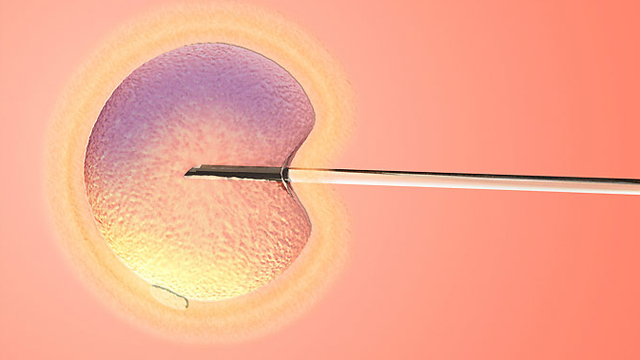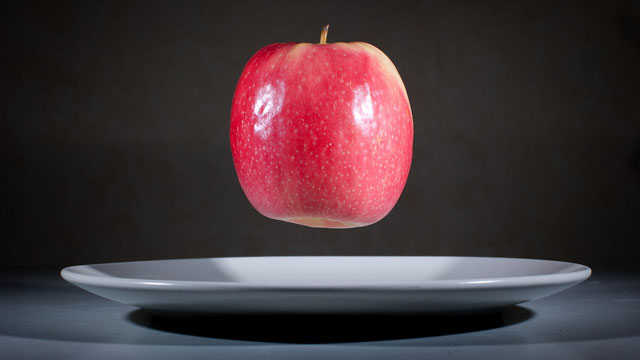Surprising Science
All Stories
“The problem with our sensory world is that we put so much faith in it. We believe that we experience the world as it is, and that our sensations are an accurate summary of reality.”
Will Google survive the current turning point in Web-based technology? CEO Eric Schmidt thinks the end of searching is near and that computers will soon tell us what to do next.
A new digital camera unveiled today presents pictures in three dimensions without the use of special glasses. The photos can be printed or viewed on the camera’s digital display.
You may want to think twice before your next visit to the doctor’s office. According to Dr. Barbara Starfield’s now-famous study, iatrogenic deaths (those resulting from treatment by physicians or […]
“Are we making fewer discoveries than in the past? Can war make us cleverer? The answers lie in scientometrics, the field of research that puts scientists under the microscope.”
New polls from Gallup show that commuting adversely affects physical and emotional health. Those with longer commutes suffer back and neck pain and worry more than non-commuters.
“Mathematicians are facing a stark choice—embrace monstrous infinite entities or admit the basic rules of arithmetic are broken.” The New Scientist on mathematic’s new uncertainty.
“A team of MIT engineers has devised a way to deliver the necessary drugs by smuggling them on the backs of the cells sent in to fight the tumor.” The procedure reduces health risks.
The idea that knowledge produces fact while imagination produces fiction is wrong, says a professor of logic at Oxford. Imagination is crucial to fundamental cognitive abilities.
What would you do to give your child a head-start in life? If you’re one of the millions of so-called “helicopter parents” we discussed previously in our series, the answer […]
Consumption of marijuana should be legal, but selling it should not be. Mark Kleiman at The Atlantic fears marketers would peddle the vice just as they have alcohol and fast food.
If a new suggestion is adopted to the Statistical Manual of Mental Disorder, many people who experience normal bouts of grief could be diagnosed with having a psychiatric problem.
As digital technology increasingly responds to our behavior in realtime, the qwerty keyboard and other hallmarks of our analog experience of life may become relics of the past.
“Dawkins ignores the possibility that God is a very different sort of being than brains and computers.” A philosopher explains his claim that Dawkin’s arguments are ‘demonstrably faulty.’
“Three volunteers running the distributed computing program Einstein@Home have discovered a new pulsar in the data from the Arecibo Observatory radio telescope.” Wired Science reports.
“The search for artificial intelligence modelled on human brains has been a dismal failure. AI based on ant behaviour, though, is having some success.” Now engineers study ant collectives.
“So far, so Minority Report.” The New Scientist heads to Los Angeles to investigate the development of gesture-based computing, a fun exercise intended for serious number crunchers.
There are few things we take more for granted than the concept of gravity. Through history, physicists like Isaac Newton and Albert Einstein have developed theories about the Universe that […]
Climate change deniers who fault others for not verifying the underlying science set an unachievable standard. We rightly trust the consensus of experts in nearly every aspect of our lives.
For the first time ever, scientists have made an invisibility cloak from silk. Current research focuses on medical applications for diabetics while visions of Harry Potter remain far afield.
While over $300 billion worth of prescription drugs were sold in the U.S. in 2009, the pharmaceutical industry is now bringing fewer new drugs to market each year now than […]
The efforts of tens of thousands of players in an online game provided a rich, new set of search strategies for the prediction of protein structures. “Nature” explains the implications.
Cancer cells love sugar. More specifically, fructose and glucose fuel pancreatic cancer cell growth. More reason to rein in your sugar consumption, says Conner Middelmann Whitney.
Quality, not cost, is the reason companies cite for their increasing investment in open source software, says Amy Vernon in a report on an Accenture survey.
Scientists are finding that what we find freakish or unsettling in other species offers fresh insight into how we anthropomorphize our perceptions into a revealing saga of ourselves.
Despite our puritanical roots, Americans are just as sexually liberated as Europeans, if not more so, according to recent studies. Americans tend to lose their virginity at the same age […]
Besides dampening the spirit, when a person experiences racist thoughts and feelings, stress hormones rush the body, the heart pumps harder and the blood vessels constrict.
While scientists often leave their religious beliefs at the door, it is much harder to abandon one’s philosophical beliefs, which are equally unproven yet influence science to a high degree.
As metaphors for the mind go, one researcher at Stanford says our brains function much more like search engines than computers. We are more probabilistic than deterministic, she says.
156 years since Thoreau published ‘Walden’, his criticism of technology remains as vital as ever. Alexis Madrigal at The Atlantic says we need reminding how to use technology well.




